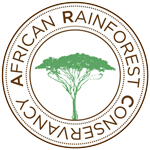Interview with Sarah Scott, Nipe Fagio Msasani Beach Ambassador
Where did the idea for the Msasani Beach Cleanup come from?
Over the past couple years, I have been following the work of a local organization called Nipe Fagio “take a broom” – be the change you want to see. They work on various clean-ups throughout the city.
We moved onto Msasani Beach Road in September 2014. Every day we had to drive past a trashy beach and public space or sit on the patio and watch paper and plastic bags blow over our garden wall by an onshore breeze. I contacted Nipe Fagio to find out how I could organize a beach cleanup on “my beach”.
They were great in providing me with all the support I needed, including information about engaging with local community leaders, providing checklists, Nipe Fagio youth ambassadors, and then finally challenging me to not only commit to one beach clean but to do it monthly as the Nipe Fagio Msasani Beach Ambassador.
I rose to the challenge.
What do you hope to achieve?
My hope is ultimately to inspire Tanzania to embrace Rwanda’s policy where once a month the entire country spends a couple hours on the street keeping their streets clean, chatting with the neighbours, and engaging with community.
You have to start on your doorstep, so that’s where I have started.
Secondly, I would like to be able to landscape the public beach area with facilities that the community needs. So after some months of observing what activities take place on our beach front, we’re in the planning stage to put in an outdoor gym, kids playground, running path, green waste compost heap and finally the kids football pitch, which is a pile of rubble at the moment after the new storm drainpipe installation. We plan to raise funds for this project through sponsorship and grants.
This is the first step in seeing what we can do to give people in Dar es Salaam the Right to their City – so many public spaces are being taken up with grand high rises buildings, and less and less space is allocated to enjoyable public spaces which in turn make Dar es Salaam into a liveable city.
Maybe, just maybe we can create a model that can be replicated throughout our city, and that others will be inspired to adopted spaces within their neighborhoods.
How did the beach become so polluted in the first place?
The ocean is polluted. After the rains, rivers flood and wash all sorts of waste into our ocean. It’s a pretty dire situation – a flawed waste management system within our city, corruption and aged dump trucks that cannot make it out to our dumpsite (we only have one dumpsite for a 4mill + city, and it’s a dump not a landfill).
There are organisations like Nipe Fagio and BORDA who are working on communication and education around the problem(s) and offering technical skills to community leaders and government in dealing with this issue.
Beach cleanups are NOT the solution, but what they do is raise awareness to the source problems, they get community actively participating in the dialogue and solutions. It’s incredible the support we have had popping out the woodwork since we have started these beach cleanups.
How is the community getting involved?
It’s had its ups and downs, but every cleanup brings with it a positive story, whether we’re 200 people or 15 people.
Since we began the cleanups, I have been invited to join the local leadership in the environment committee called the Serikali ya Mtaa of Bonde la Mpunga (the area in which I live). This is a great honour. Many of my Tanzanian friends are tickled by the fact that as a foreigner I have been invited into my community leadership. I was talking to the district commissioner of Kinondoni the other day, and mentioned that I was now a community leader. And he just chuckled in an endearing way. It’s great to experience the support from friends, family and the community.
What is your favorite part of working on this project?
Part of me would like to say, the change in me. After a number of years of apathy, setting my cynicism and hopelessness aside, I have been living the change that I hope to see around me, engaging in what it means to be a member of a community, and being humbled and grateful by all the small steps. My mum used to say when I was young, “Sarah, you can change the world one life at a time.” There is a slow and steady change, we’re learning by trial and error, and knowing that we’re in this together. We say “Tupo Pamojoa” – one of my favourite phrases in KiSwahili – “we are together.”
Yes, that’s my most favourite part of this project, working with community, sharing with others and hopefully inspiring others. Also playing into my strengths, making things happen by using contacts, connections, and networks I have built in my business over the past years of working in Tanzania for the greater good of the community.
What do you feel is your best accomplishment so far?
Consistency – I think that’s where it is at. This project is made up for 3 Cs: consistency, community and commitment. I can get quite distracted, and loose momentum of more monotonous projects, consistency does not come naturally to me. My commitment to this project drives the consistency, my commitment to my community drive the consistency; we’re approaching our 7th cleanup, and so much has happened in those 7 months.





Leave A Comment